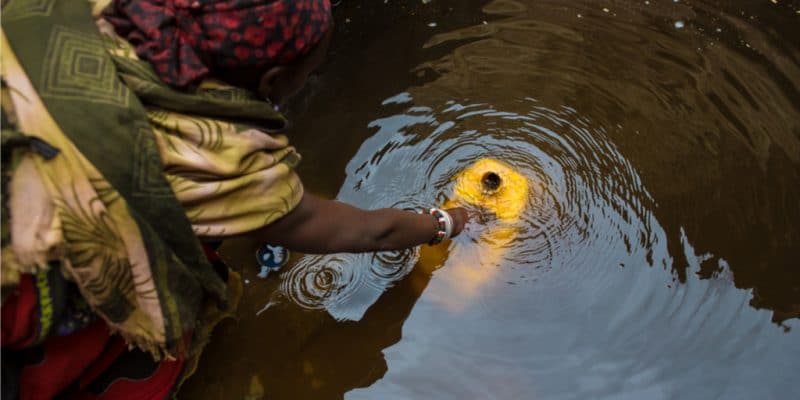The French company Vergnet Hydro and the Belgian company Altech Safs have just won a major contract to supply drinking water to 60,000 people living in rural areas. This project concerns all eight administrative regions of Guinea.
Vergnet Hydro, a subsidiary of the Odial Solutions group, based in Orléans, France, and its partner Altech Safs, whose head office is located in Liège, Belgium, have just won a major contract. The two companies will provide drinking water to 60,000 people living in more than 120 communities in Guinea’s eight administrative regions. They will have to determine the sites that will house the water collection, treatment and distribution points. To do this, Vergnet Hydro teams will visit the sites concerned to meet the inhabitants, find out their expectations and follow their water supply habits.
Priority to surface water sources
In these zones, Vergnet Hydro teams will carry out topographic, geological and hydrological studies. They should also determine the position of the villages in relation to the springs and areas to be preserved. In accordance with the call for tenders launched by the National Office for Hydraulics of Guinea, the project will favour the purification of surface water rather than the exploitation of groundwater, which is too complex to carry out, for economic reasons, because of the isolation of certain sites, or geological, when it is not possible to carry out boreholes equipped with pumps at human capacity, or even to carry out some.
Vergnet Hydro will therefore fall back on village wells, marshes or even rivers. It must be said that Guinea has the necessary resources in this regard. The country has 1,300 watercourses from where many rivers and streams in West Africa originate. This is the case of the Niger, Senegal, Gambia, Koliba, Kolonté, Gavally or Diani rivers. This is why Guinea is often called the “water tower of West Africa”.
Equipment supplied by Altech Safs
The stations will be designed and manufactured by Altech Safs, which has already installed 20 units in Guinea. Each of these installations occupies about twenty square metres and combines the techniques of treatment by coagulation, flocculation, and disinfection by bleach, then filtration on sand and activated carbon. These stations can treat 1 to 2 m3 per hour, which means supplying water to about 250 to 1000 people. “The main advantages of a Hydropur station are autonomy, because the treatment is done in a gravitational way, we can also count on robustness, because the structure is made of stainless steel,” says Claude Lombart, Director of Altech Safs.
To ensure the long-term operability of the installations, Altech Safs will use Hydropur technology, a high-tech system that allows water to be treated at a lower cost. This company is present in more than nine African countries and intends to train local actors in the use of this technology. They will thus ensure local maintenance and repair of the installations.
This project has received a boost from Belgium. The Belgian government injected 6.5 million euros (more than 4.2 billion CFA francs) in the form of an interest-free loan. And its development agency, Enabel, will monitor the project’s progress. Altech Safs and Vergnet Hydro have three years to provide drinking water to 60,000 people. The consortium will then follow the sites for two years to ensure after-sales service and local ownership. The project will increase the rate of access to safe drinking water in rural Guinea from the current 65 per cent, according to the authorities.
Jean Marie Takouleu






